General description enterosorbent agent.
Special conditions
In the treatment of intoxication, it is necessary to create an excess of activated carbon in the stomach (before washing it) and in the intestine (after washing the stomach). A decrease in the concentration of activated carbon in the medium promotes the desorption of the bound substance into the intestinal lumen and its absorption into the blood; to prevent resorption, repeated gastric lavage with activated carbon and the appointment of activated carbon inside are recommended. If the poisoning is caused by substances involved in enterohepatic circulation (cardiac glycosides, indomethacin, morphine, and other opiates), activated charcoal must be used for several days. When using drugs for more than 10-14 days, prophylactic prescription of vitamins and calcium preparations is necessary. It is recommended to store it in a dry place, away from substances that emit gases or vapors into the atmosphere. Storage in air (especially humid) reduces sorption capacity.
Drug interactions
Activated carbon reduces the effectiveness of drugs taken orally simultaneously with it.
Pharmacodynamics
The drug has an adsorbing and non-specific detoxification effect. In the lumen of the gastrointestinal tract, activated charcoal binds and removes from the body endogenous and exogenous toxic substances of various nature, including bacteria and bacterial toxins, food allergens, drugs, poisons, alkaloids, heavy metal salts, gases.
Pharmokinetics
Not absorbed, not degraded, excreted completely through the gastrointestinal tract within 24 hours.
Indications
It is used as a detoxifying agent for exogenous and endogenous intoxications of various origins.
In the complex treatment of food toxicoinfection, salmonellosis, dysentery.
In case of poisoning with drugs (psychotropic, sleeping pills, narcotic drugs, etc.), alkaloids, heavy metal salts and other poisons.
With diseases of the gastrointestinal tract, accompanied by dyspepsia, flatulence.
For food and drug allergies.
With hyperbilirubinemia (viral hepatitis and other jaundice) and hyperazotemia (renal failure).
To reduce gas formation in the intestine before ultrasound and X-ray examinations.
Application methods
Inside in tablets or after preliminary grinding in the form of an aqueous suspension, one hour before meals and taking other medicines. The required amount of the drug is stirred in 1/2 glass of water.
The dosage regimen for adults is on average 1.0-2.0 g (4-8 tablets) 3-4 times a day, the maximum single dose for adults is up to 8.0 g.
For children, the drug is prescribed on average at the rate of 0.05 g / kg of body weight 3 times a day, the maximum single dose is up to 0.2 g / kg of body weight.
The course of treatment for acute diseases is 3-5 days. For allergies and chronic diseases – up to 14 days. A second course – in 2 weeks on the recommendation of a doctor.
In case of acute poisoning, treatment begins with gastric lavage using a suspension of activated carbon, then 20-30 g of the drug is given inside.
In case of flatulence, 1.0-2.0 g (4-8 tablets) of the drug is prescribed orally 3-4 times a day. The course of treatment is 3-7 days.
Contraindications
Exacerbation of gastric ulcer and 12 duodenal ulcer, ulcerative colitis, bleeding from the gastrointestinal tract, intestinal atony, individual drug intolerance, simultaneous administration of antitoxic drugs, the effect of which develops after absorption (methionine, etc.).
Side effects
Constipation, diarrhea. With prolonged use (more than 14 days), it is possible to reduce the absorption of calcium, vitamins, nutrients. Stool staining dark.
Composition
1 tablet contains:
active substance: activated carbon 250 mg
excipient: potato starch
Specifications
Active ingredients activated carbon
Country of origin Russia
Manufacturer Pharmstandard-Leksredstva OJSC
Release form tablets 250 mg – 50 pcs per pack.
Store in a dry place
Keep out of reach of children

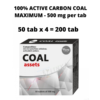
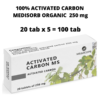
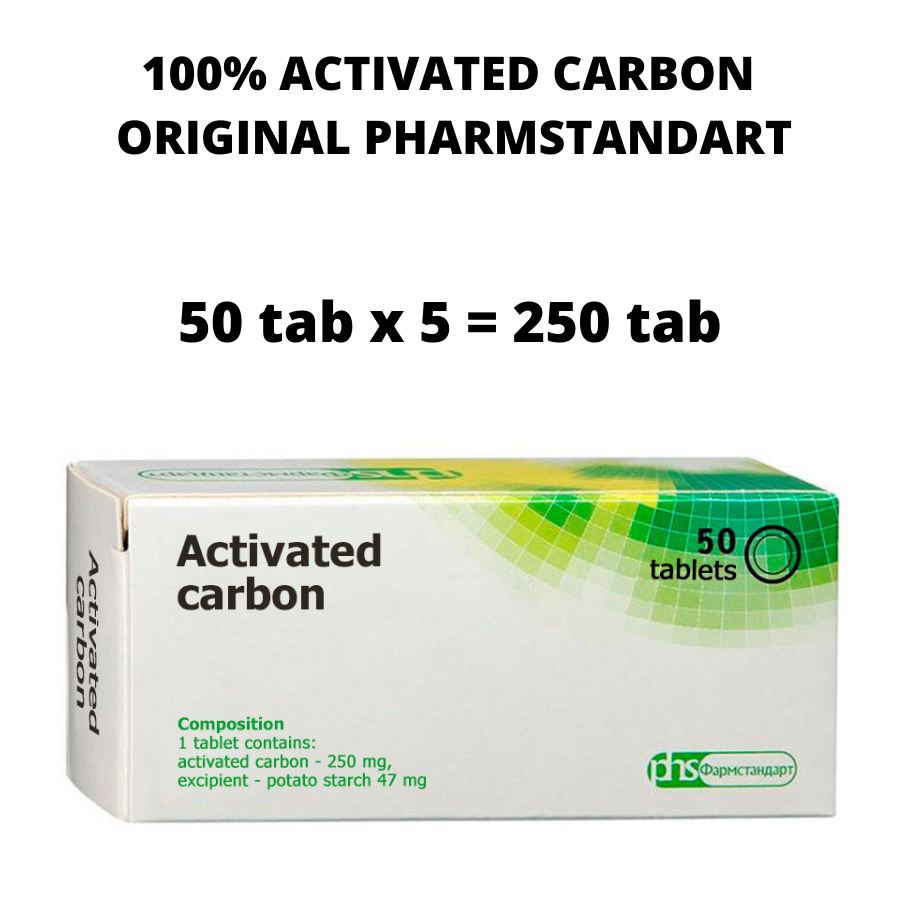

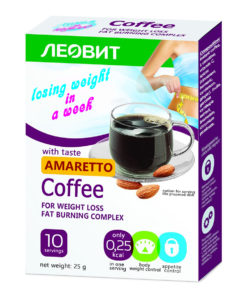
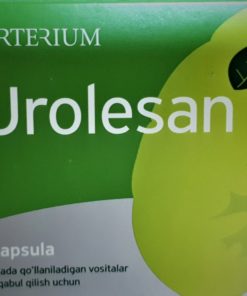
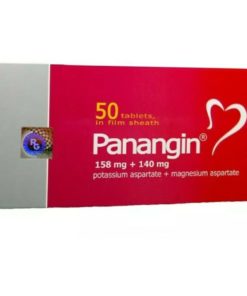



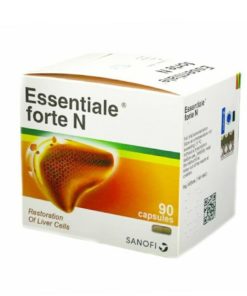
Reviews
There are no reviews yet.